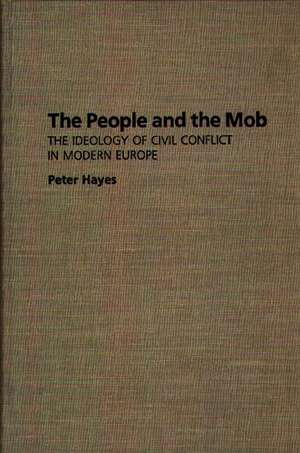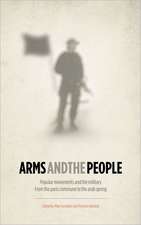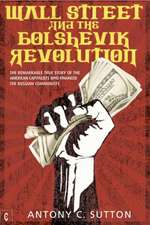The People and the Mob: The Ideology of Civil Conflict in Modern Europe
Autor Peter Hayesen Limba Engleză Hardback – 29 sep 1992 – vârsta până la 17 ani
Preț: 345.83 lei
Preț vechi: 476.34 lei
-27% Nou
Puncte Express: 519
Preț estimativ în valută:
66.17€ • 72.11$ • 55.76£
66.17€ • 72.11$ • 55.76£
Carte tipărită la comandă
Livrare economică 23 aprilie-07 mai
Preluare comenzi: 021 569.72.76
Specificații
ISBN-13: 9780275943363
ISBN-10: 0275943364
Pagini: 184
Dimensiuni: 156 x 235 x 19 mm
Greutate: 0.45 kg
Ediția:New.
Editura: Bloomsbury Publishing
Colecția Praeger
Locul publicării:New York, United States
ISBN-10: 0275943364
Pagini: 184
Dimensiuni: 156 x 235 x 19 mm
Greutate: 0.45 kg
Ediția:New.
Editura: Bloomsbury Publishing
Colecția Praeger
Locul publicării:New York, United States
Notă biografică
PETER HAYES is a temporary Assistant Professor of Political Science at Iowa State University. A British citizen, he earned his Ph.D. at the University of Illinois at Urbana-Champaign.
Cuprins
IntroductionIdeologyThe Ideological Functions of the MobThe Place of the Lumpenproletariat in Marx's DialecticMarx's Class Analysis of Events in FranceThe Emergence of the Crowd: Gustave Le Bon and the Fascist Concept of the MassesFascist and Democratic CorporatismDemocracyIdeology and Democracy in the 1984-85 British Miners' StrikeThe Dilemma of Democratization in Eastern EuropeBibliographyIndex














